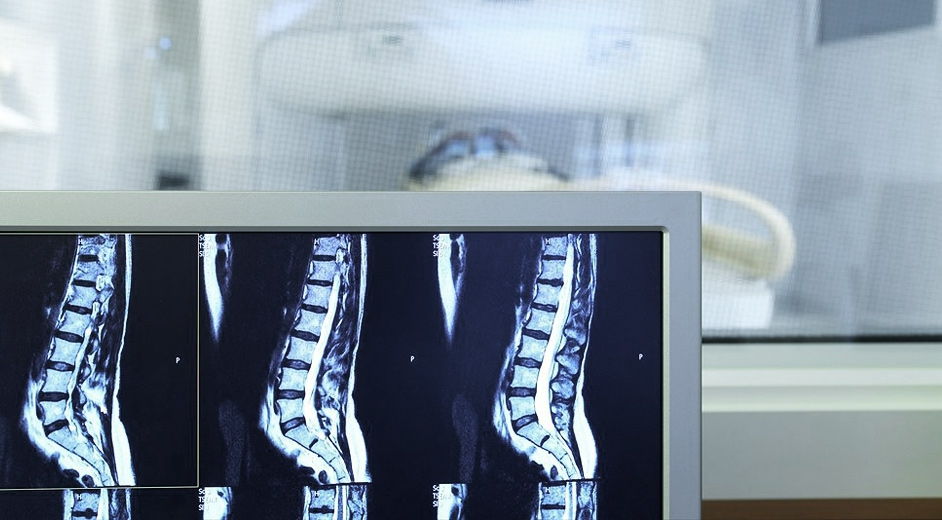It mainly affects postmenopausal women. However, it can also occur in men and in women with certain underlying conditions that enhance bone demineralisation.
As a result, patients suffer from an increased risk of fracturing hips and vertebrae, in particular.
Symptoms
Osteoporosis may have no symptoms for a long time.However, patients might suffer from bone pain (mainly back), bone fractures from light falls or even spontaneously (mainly hips and vertebrae), and a reduction in body height, or humpback.
Causes
Experts distinguish between primary and secondary osteoporosis.Primary osteoporosis is mainly caused by postmenopausal conditions and conditions of the older age.Secondary osteoporosis is due to changes and disorder in hormone function and production (e.g. oestrogens, vitamin D), malabsorption syndrome (intestines cannot absorb important substances), inactivity, certain drugs, certain chronic diseases (e.g. chronic inflammatory bowel disease, malnutrition, pathological leanness).
The following factors are thought to increase the risk for osteoporosis: age, being female, genetic factors, lack of sex hormones (early menopause, removal of both ovaries), heavy cigarette smoking, alcoholism, low calcium intake, lack of vitamin D.
„ Osteoporosis is characterised by a reduction in the strength and stability of your bones, and may have no symptoms for a long time.
Treatment
If possible, risk factors should be eliminated or reduced.General measures comprise training of coordination and muscular strength in physical therapy, avoidance of osteoporosis, minimising the risk of falling, enhancing drugs, physical activity, possibly pain killers in case of pains for a set time frame, increased intake and supplementation of calcium and vitamin D.
There are also certain drugs and hormones which can help to reduce the risk for bone fracture in patients with osteoporosis.
The type of therapy that will be suggested by your doctor depends on an individual’s circumstances and the state of their medical condition.
Another helpful strategy of the osteoporosis treatment is the application of hip-protectors.
These give additional protection to the hip bones decreasing the risk of fractures.






